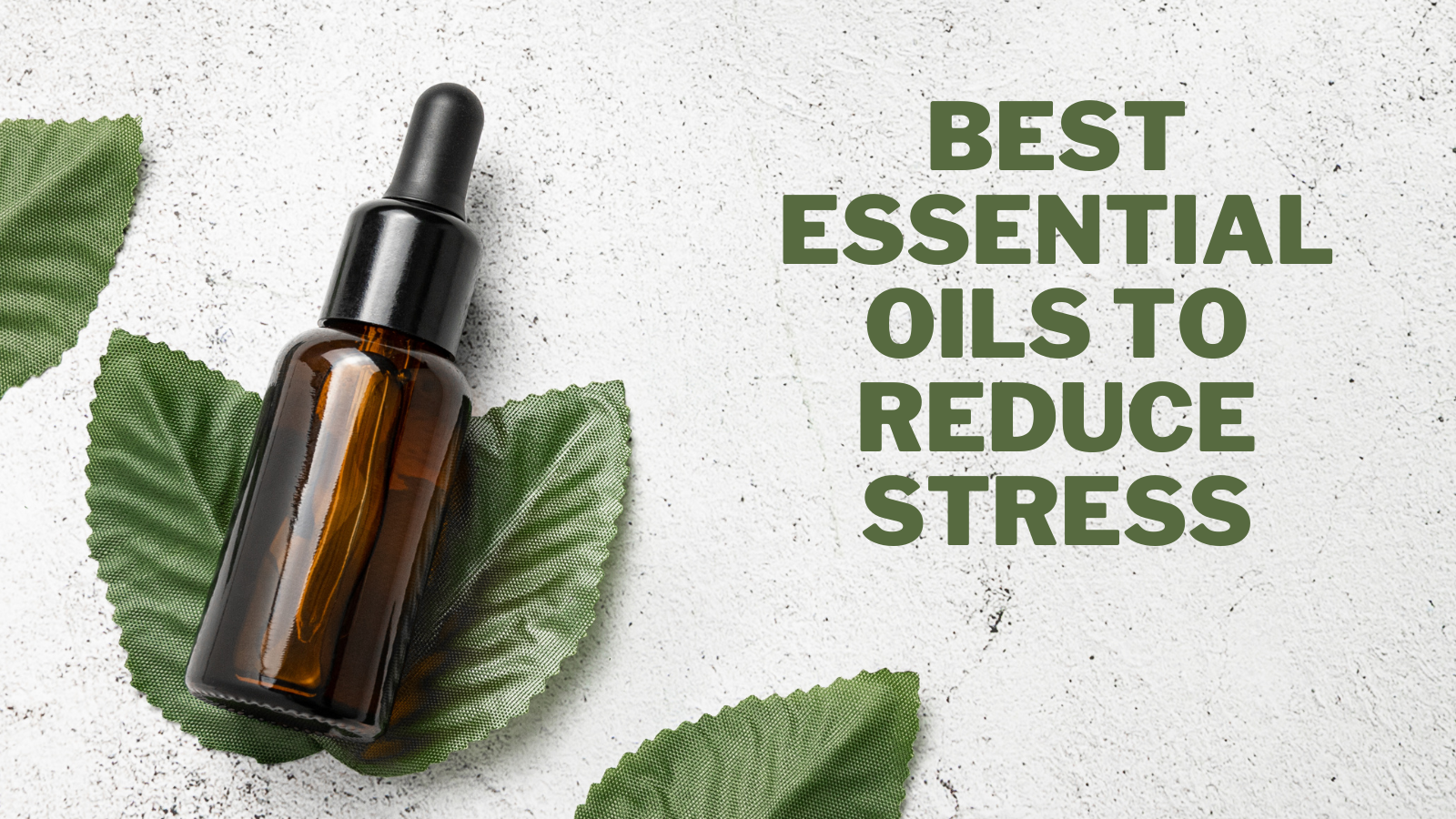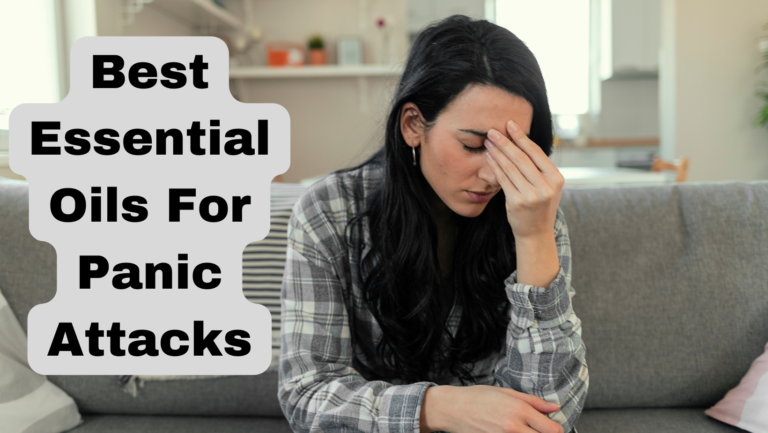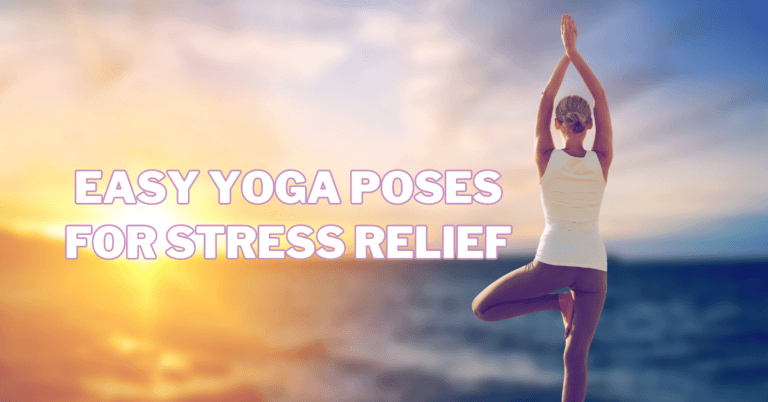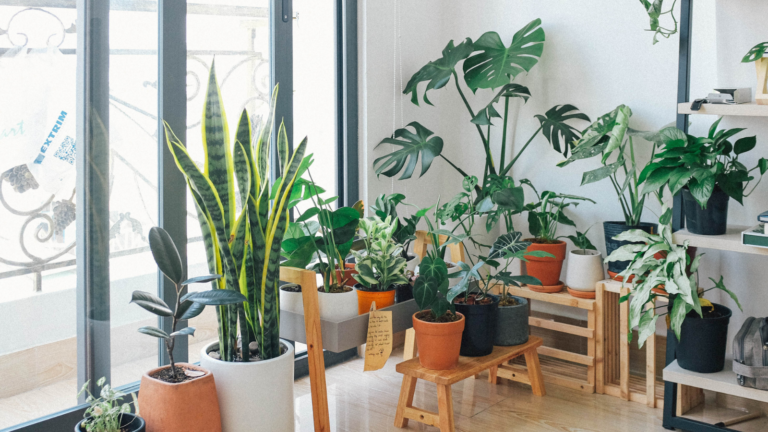Best Essential Oils To Reduce Stress
Best Essential Oils To Reduce Stress
Stress is an unavoidable part of life, and while a certain amount of stress can be beneficial, chronic stress can harm our physical and mental health.
Essential oils are a natural and effective way to reduce stress and promote relaxation. These oils are derived from plants and have been used for thousands of years for their therapeutic properties.
This blog will explore some of the best essential oils for stress relief and how to use them to create a calming and soothing environment.
Whether you want to reduce stress in the workplace, at home, or during your daily commute, incorporating essential oils into your routine can help you feel more relaxed, centred, and balanced.

What Are Essential Oils?
Essential oils are highly concentrated plant extracts that capture the aroma and therapeutic properties of the plant.
They are extracted from different parts of plants, including leaves, flowers, stems, roots, and bark, through steam distillation, cold pressing, or solvent extraction.
Essential oils contain volatile organic compounds that give them their distinctive aroma and therapeutic benefits. When inhaled, applied topically, or ingested, these compounds interact with the body's chemistry.
When inhaled, applied topically, or drunk, these compounds interact with the body's chemistry. This is why essential oils are commonly used for calming, uplifting, and mood-enhancing effects.
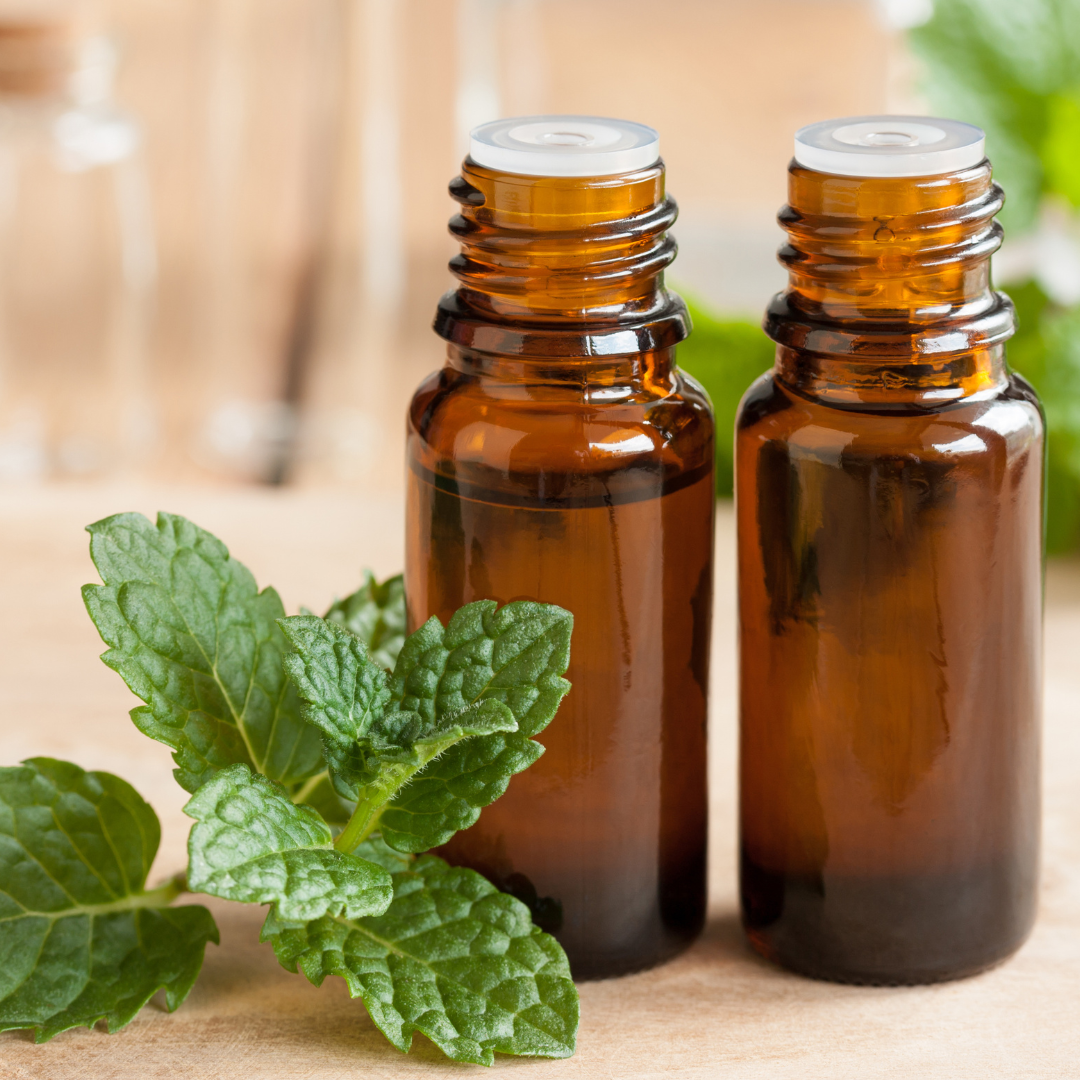
The Importance Of Essential Oils To Reduce Stress
Stress is a common issue that affects many people and can harm our physical and mental health. Essential oils offer a natural and effective way to reduce stress and promote relaxation.
1. Natural And Safe
Essential oils are highly concentrated plant extracts known for their therapeutic properties. They are extracted from various parts of plants, such as the flowers, leaves, stems, roots, and even the bark.
These oils are considered natural and safe because they do not contain any synthetic chemicals or harmful ingredients.
Essential oils are often used in aromatherapy, a holistic approach to wellness that utilizes scents to improve physical and emotional well-being.
When inhaled or absorbed through the skin, essential oils can positively impact the nervous system, promoting relaxation, reducing stress, and improving mood.
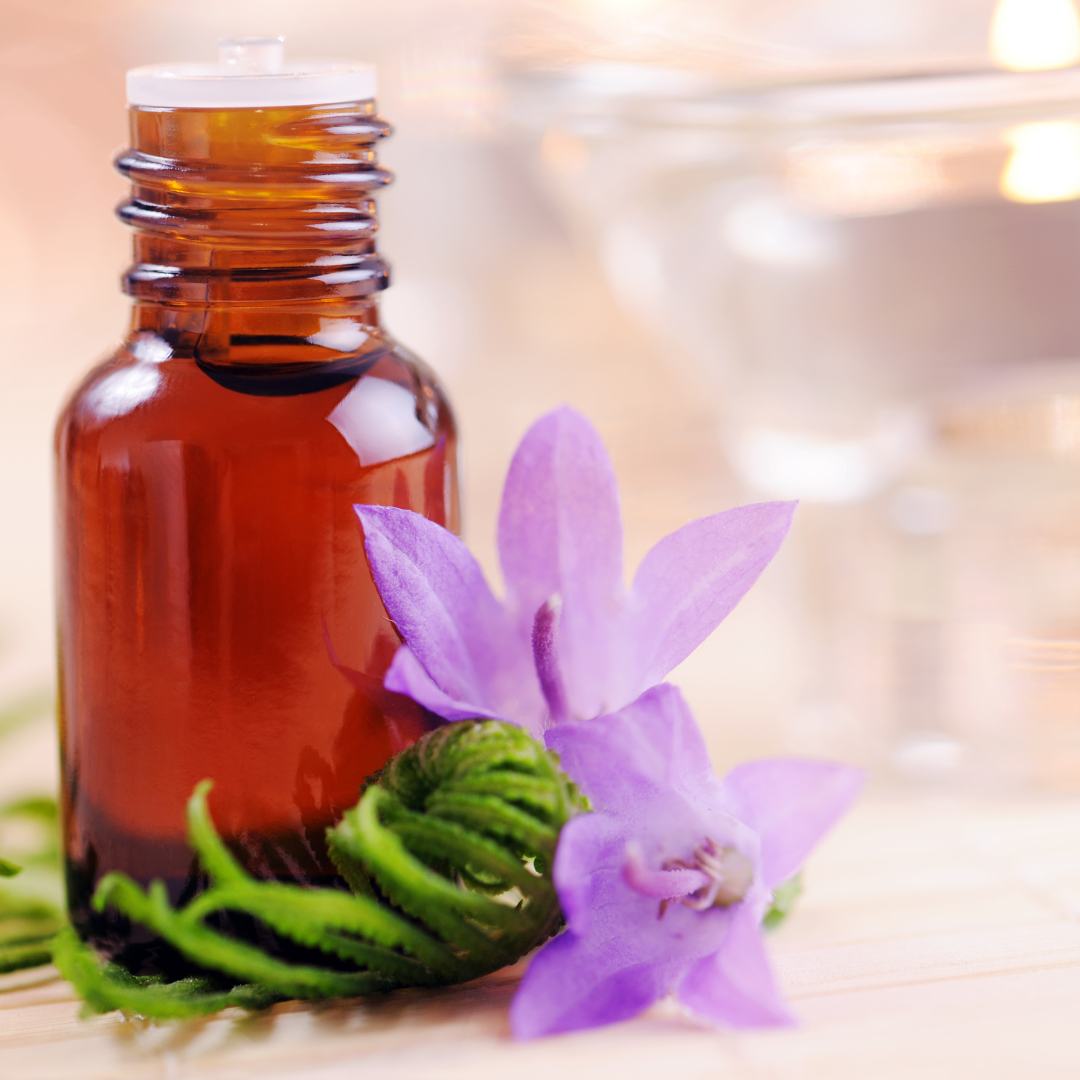
2. Promote Relaxation
Essential oils have been used for centuries to promote relaxation and reduce stress. When inhaled or absorbed through the skin, essential oils can positively impact the nervous system, promoting feelings of calm and reducing anxiety.
Lavender oil is one of the most well-known essential oils for relaxation. It has a sweet, floral scent and is known for its calming and soothing properties. Lavender oil helps to reduce anxiety and promote better sleep quality.
Chamomile oil is another essential oil commonly used for its calming properties. It has a sweet, apple-like aroma that can help reduce anxiety and promote relaxation. Chamomile oil is also known for its anti-inflammatory and pain-relieving properties.
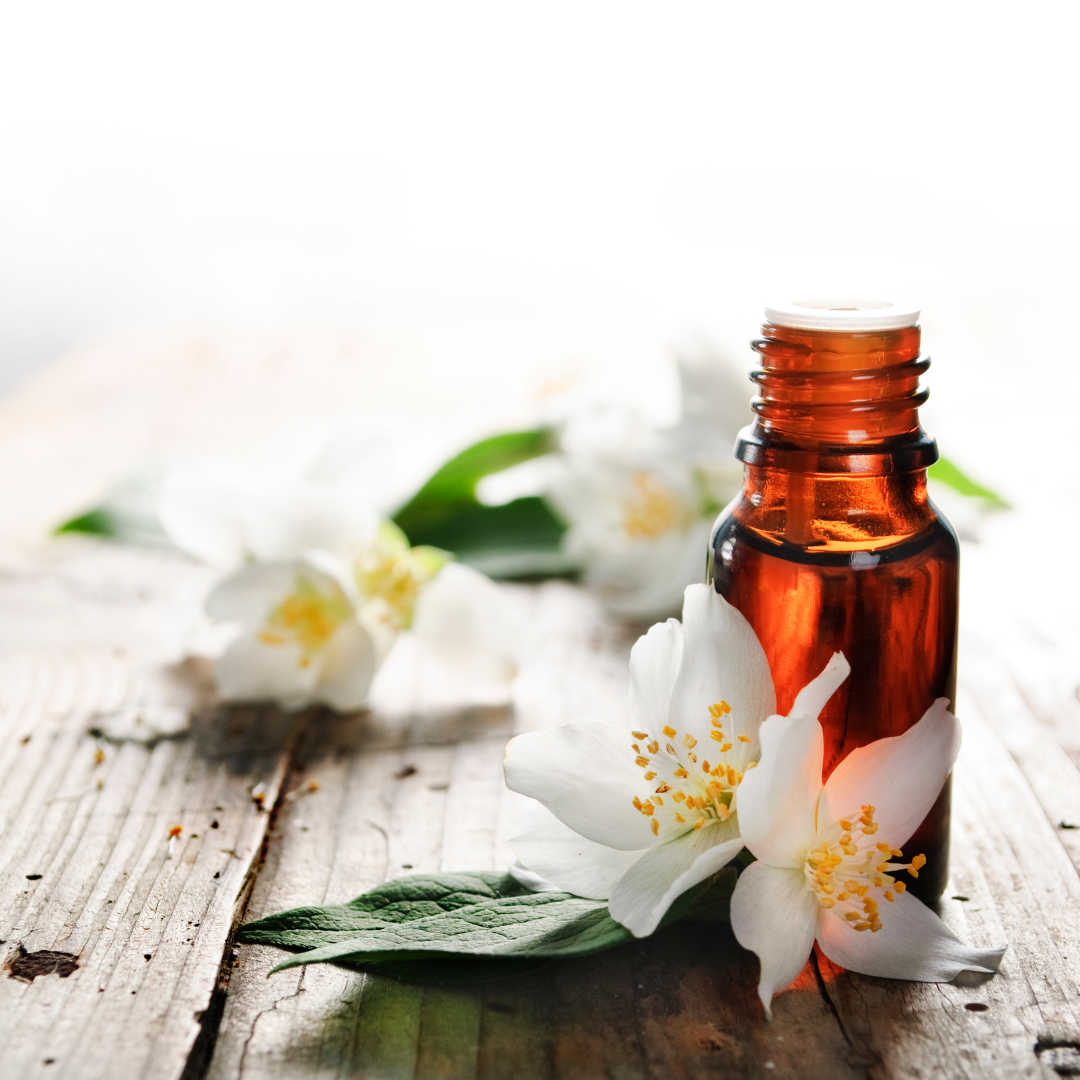
3. Improve Sleep
Stress can often interfere with our ability to get a good night's sleep. Essential oils can be a natural and effective way to promote better sleep by reducing feelings of anxiety and promoting relaxation.
Lavender oil is one of the most commonly used essential oils for sleep. Its sweet, floral scent is known for its calming and soothing properties, which can help to reduce anxiety and promote relaxation.
Studies have shown that lavender oil can improve sleep quality and duration, making it a popular choice for those struggling with insomnia.
4. Easy To Use
Essential oils are highly concentrated plant extracts derived from various parts of plants, including flowers, leaves, stems, and roots.
They are known for their distinct aromas and therapeutic properties. Essential oils are easy to use and can be incorporated into daily routines in various ways.
One of the most popular ways to use essential oils is by diffusing them. Diffusers emit a fine mist of essential oils into the air, allowing you to inhale the aroma and enjoy the benefits.
Essential oils can be diffused in homes, offices, and other spaces to create a relaxing and inviting atmosphere.
5. Customizable
There are over 100 essential oils, each with unique properties and benefits. This means you can customize your essential oil blends to suit your needs and preferences.
Whether you prefer floral, citrus, or woody scents, an essential oil can help reduce your stress levels.
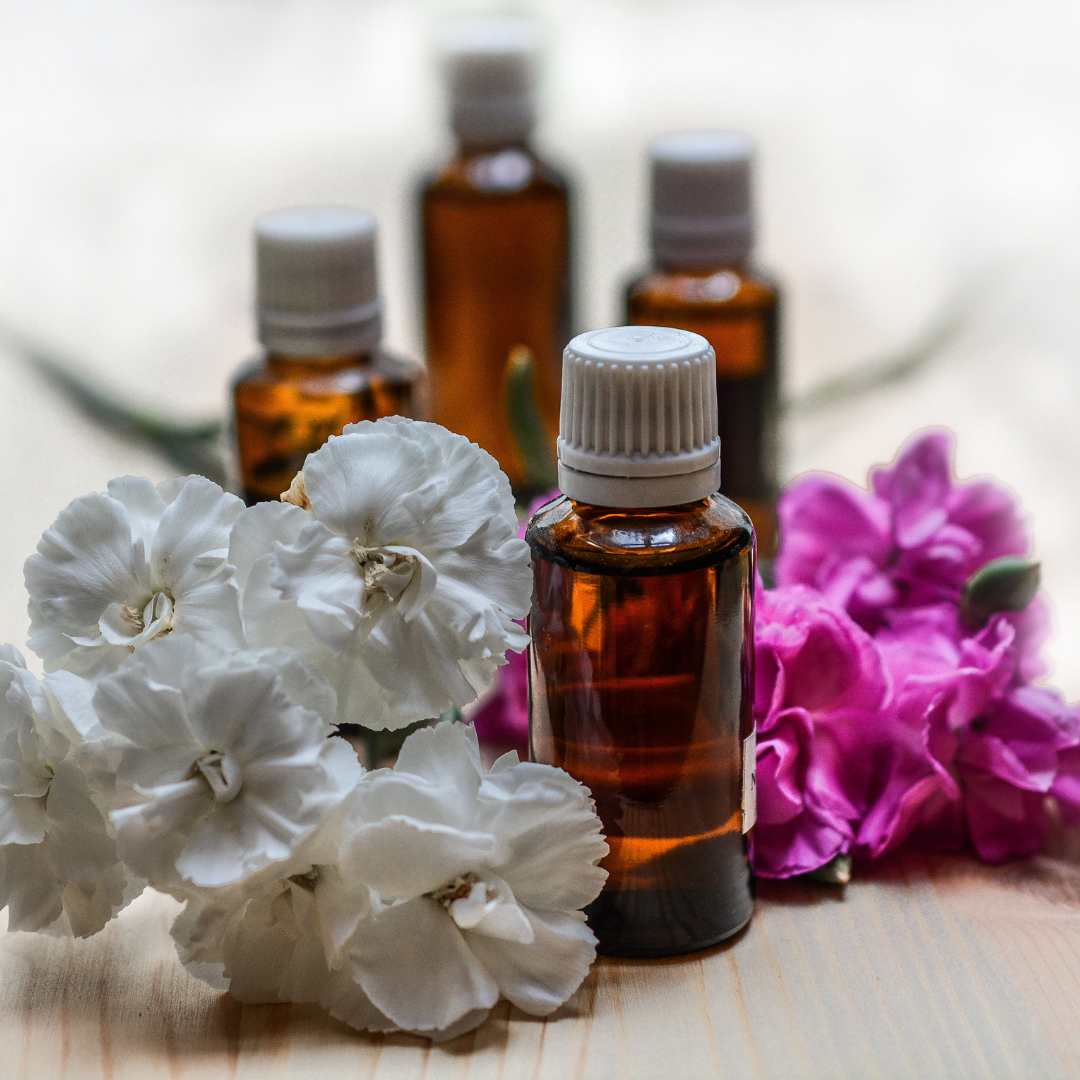
Best Essential Oils To Reduce Stress
Stress is a common issue that many people face in their daily lives. From work-related stress to family responsibilities, stress can be triggered by many different factors.
While there are many ways to manage stress, essential oils have gained popularity as a natural and holistic approach to reducing stress and promoting relaxation.
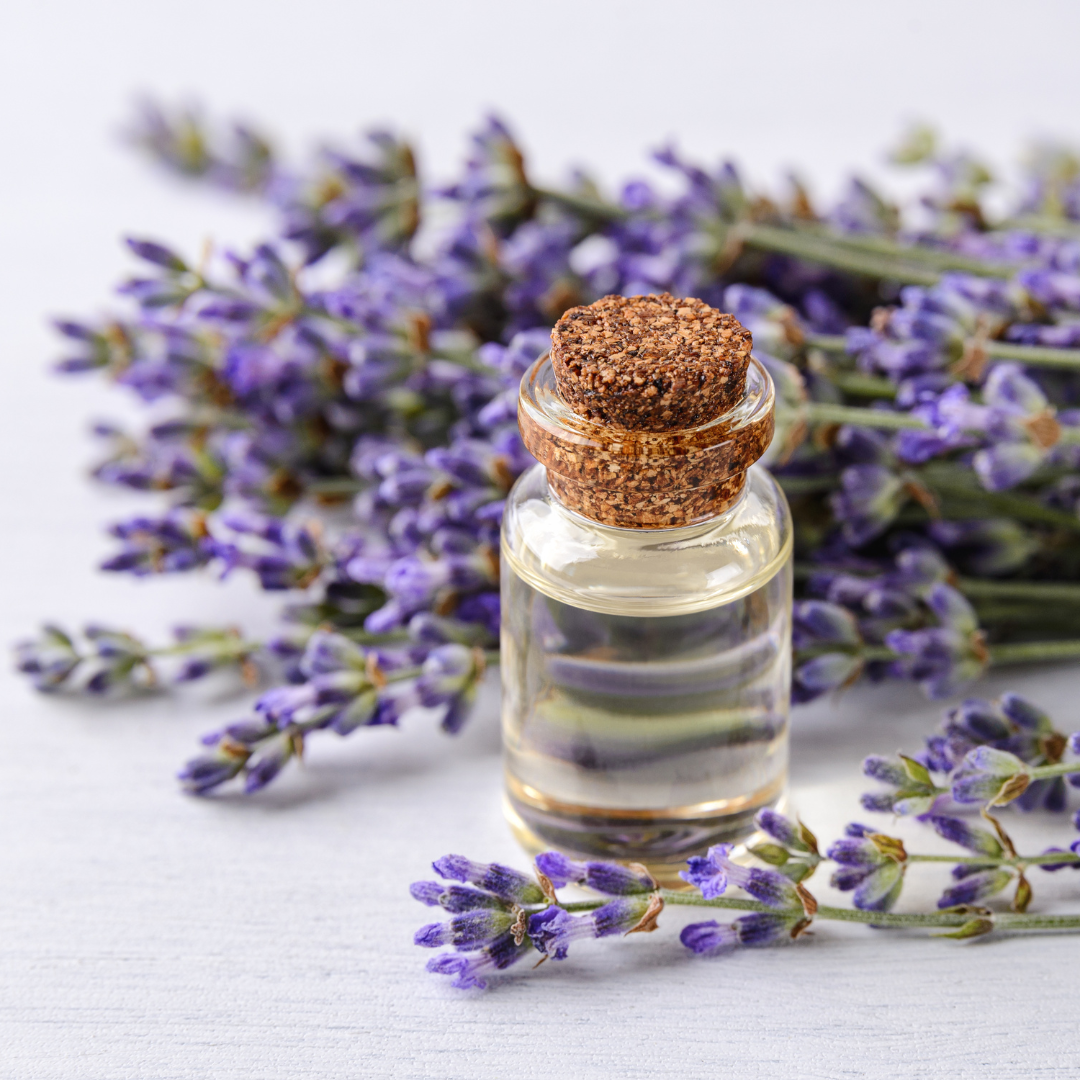
1. Lavender Essential Oil
Lavender essential oil is extracted from the flowers of the lavender plant. It is known for its soothing effects, which can help reduce stress and anxiety.
One of the most widely used essential oils for reducing stress is lavender, which has been utilized for its therapeutic benefits for ages.
Studies have shown that lavender's scent can help promote relaxation and reduce anxiety. Inhaling lavender essential oil can help to calm the nervous system and lower the levels of stress hormones in the body.
There are several ways to use lavender essential oil for stress relief. One way is to diffuse it in your home or workspace. You can use a diffuser or add a few drops to a bowl of hot water and inhale the steam.
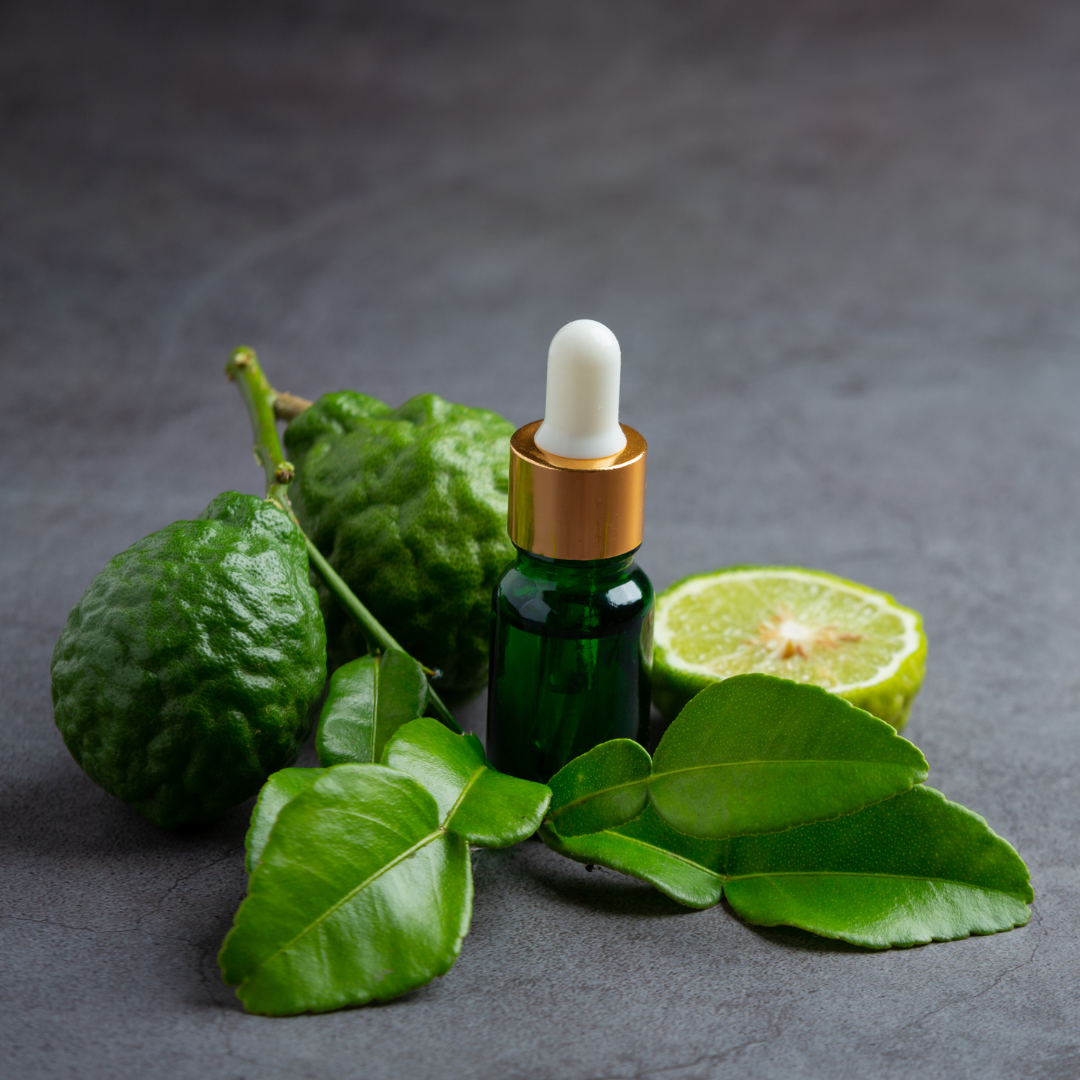
2. Bergamot Essential Oil
Bergamot essential oil is derived from the peel of the bergamot fruit, a citrus fruit. It has a unique citrusy and floral scent that can uplift the mood and promote relaxation. Bergamot essential oil is known for its ability to reduce feelings of anxiety and stress.
The scent of bergamot essential oil can help to stimulate the release of certain neurotransmitters in the brain, such as dopamine and serotonin.
These neurotransmitters are associated with happiness and well-being, which can help reduce stress and anxiety.
One of the most popular ways to use bergamot essential oil is through diffusion. You can use a diffuser to release the scent of bergamot into the air, creating a calming and uplifting atmosphere.
Add a few drops of bergamot essential oil to a warm bath to encourage relaxation and lessen stress.
Bergamot essential oil can also be applied topically to the skin. It is important to dilute the oil in a carrier oil, such as coconut or jojoba oil, before applying it to the skin.
You can use the oil on your temples, wrists, or the soles of your feet to help reduce feelings of stress and anxiety throughout the day.

3. Chamomile Essential Oil
Chamomile essential oil comes from the chamomile plant's flowers through steam distillation. It has a sweet, floral aroma that is calming and relaxing, which makes it a popular choice for aromatherapy.
The oil includes several active substances, such as apigenin, bisabolol, and chamazulene, which have antioxidant and anti-inflammatory properties.
Chamomile essential oil has been used for centuries to alleviate anxiety and promote relaxation. Its soothing properties make it useful in reducing symptoms of stress and tension, and it can also help with insomnia and other sleep-related issues. It is a natural sedative that can promote better sleep quality.
Chamomile essential oil can be used in several ways, including aromatically through diffusers, topically through massage oils, or by adding a few drops to a warm bath.
When using topically, diluting the oil with a carrier oil is recommended to prevent skin irritation. Chamomile essential oil is a versatile and effective natural remedy for promoting relaxation and reducing anxiety.
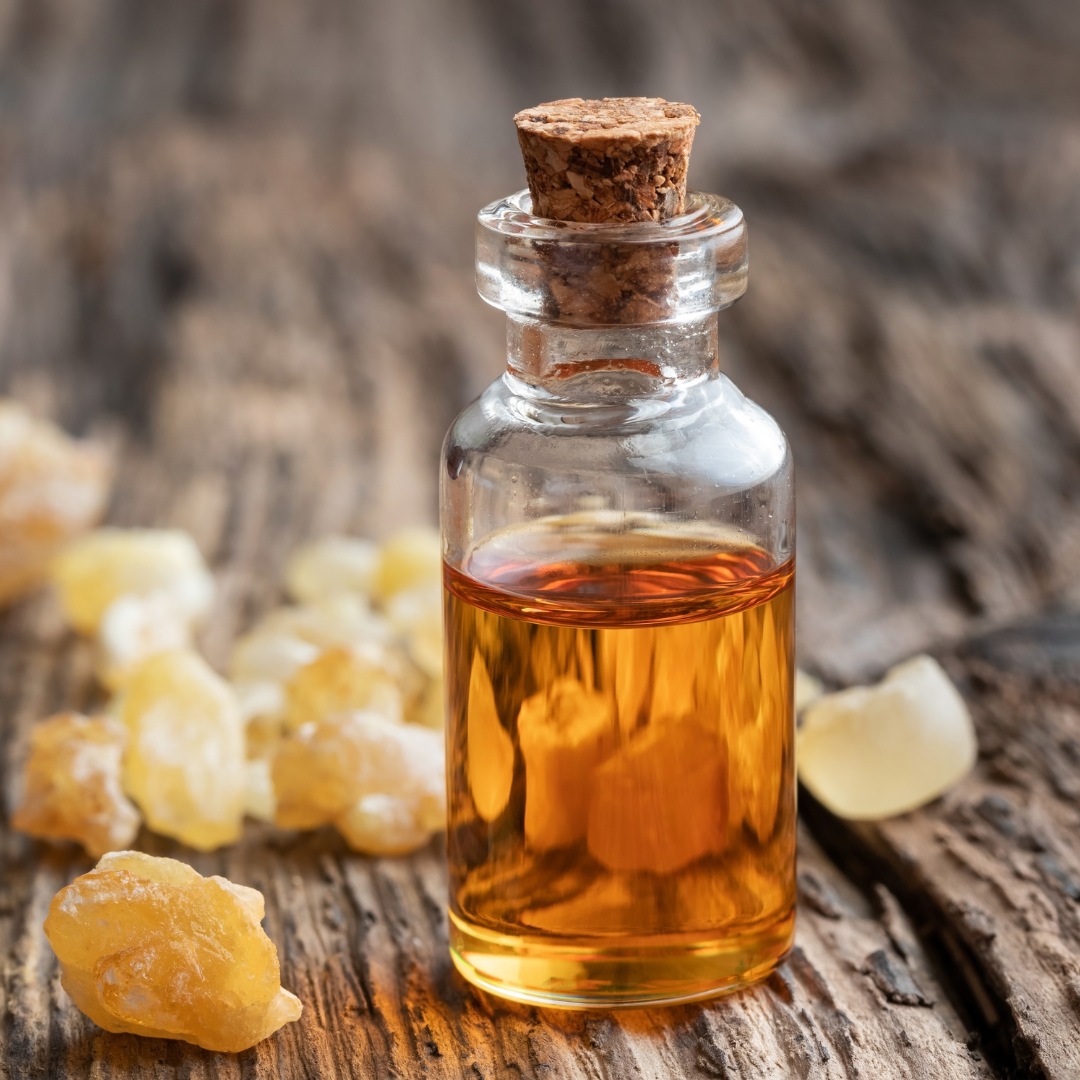
4. Frankincense Essential Oil
Frankincense essential oil has a long history of use in religious ceremonies and as a traditional medicine.
It was highly valued in ancient times for its therapeutic properties and was considered more valuable than gold.
The oil treats various conditions, including respiratory infections, digestive issues, and skin problems.
Frankincense essential oil has anti-inflammatory and pain-relieving properties, which makes it useful in reducing symptoms of arthritis and other inflammatory conditions. It can also support the immune system and improve overall health and wellness.
Frankincense essential oil can be blended with other oils to create customized aromatherapy blends.
It pairs well with citrus oils like lemon or grapefruit and woody oils like cedar or sandalwood. When used in a diffuser, frankincense essential oil can help to purify the air and create a relaxing and rejuvenating atmosphere.
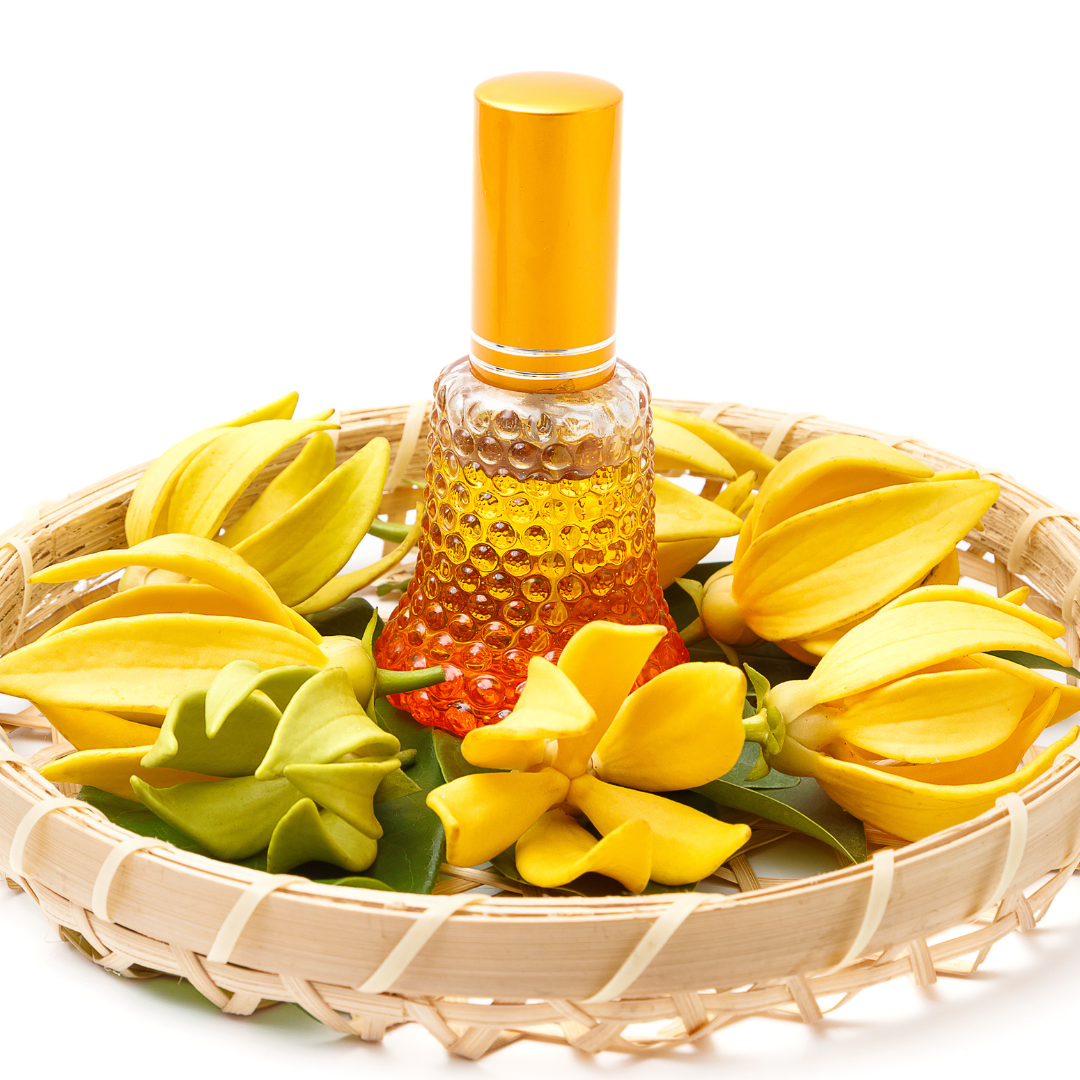
5. Ylang-Ylang Essential Oil
Ylang-ylang essential oil has been used in traditional medicine for centuries to treat various conditions.
It was highly valued in Indonesia, where the flowers were often spread on the beds of newlyweds to promote relaxation and intimacy.
The oil has also been used to treat conditions such as high blood pressure, headaches, and menstrual cramps.
In aromatherapy, ylang-ylang essential oil is often used to promote emotional balance and improve mood.
Its uplifting and calming properties make it useful for reducing symptoms of depression and anxiety.
It is also believed to have aphrodisiac properties and is sometimes used to promote intimacy and improve sexual function.
Ylang-ylang essential oil is a valuable ingredient in natural skincare products due to its ability to balance sebum production and promote healthy skin.
It also treats various skin conditions, including acne, eczema, and psoriasis. Its nourishing and moisturizing properties can also help improve the skin's appearance.
The unique aroma of ylang-ylang essential oil makes it a popular choice for perfumes and other scented products.
It blends well with other floral oils, such as rose or jasmine, and citrus oils, such as bergamot and lemon. Its sweet, floral scent can help to create a relaxing and romantic atmosphere in the home or office.
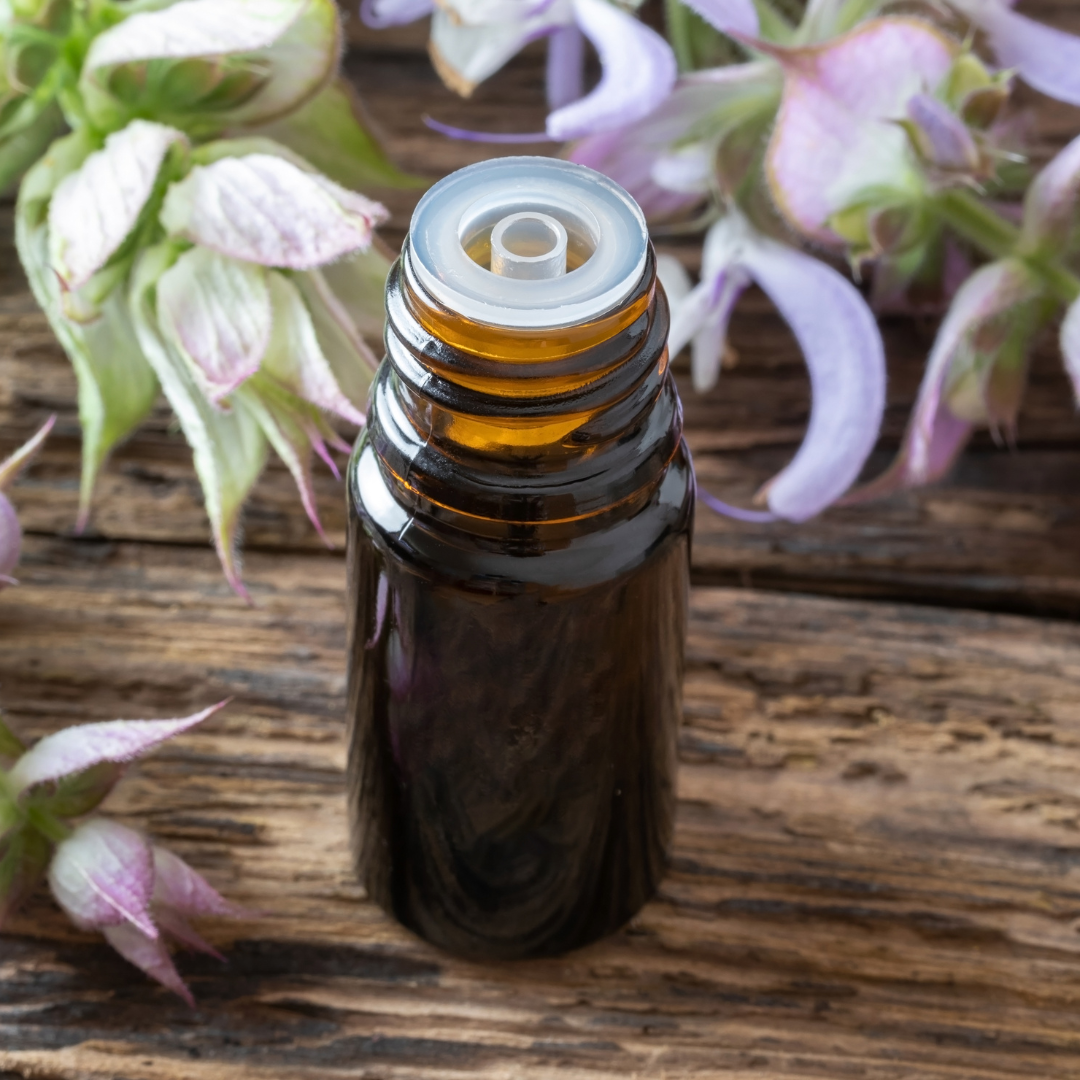
6. Clary Sage Essential Oil
Clary sage essential oil is derived from the Salvia sclarea plant, native to the Mediterranean region. The oil is extracted from the leaves and flowers of the plant through steam distillation.
The oil has a slightly sweet, herbal aroma with earthy and floral undertones. Aromatherapy is often uses to promote relaxation and reduce stress and anxiety.
Clary sage has antidepressant properties, making it a popular choice for those looking to improve their mood and overall well-being.
When used topically, clary sage essential oil has many benefits for the skin. Skincare products often use it to soothe irritated skin and promote a more even skin tone.
The oil has antifungal and antibacterial properties, which may make it useful for treating acne and other skin conditions.
Clary sage essential oil is generally considered safe when used as directed. However, it should be avoided by pregnant women and those with certain medical conditions.
It is always recommended to dilute the oil before applying it topically and to test for any allergic reactions before using it for the first time.
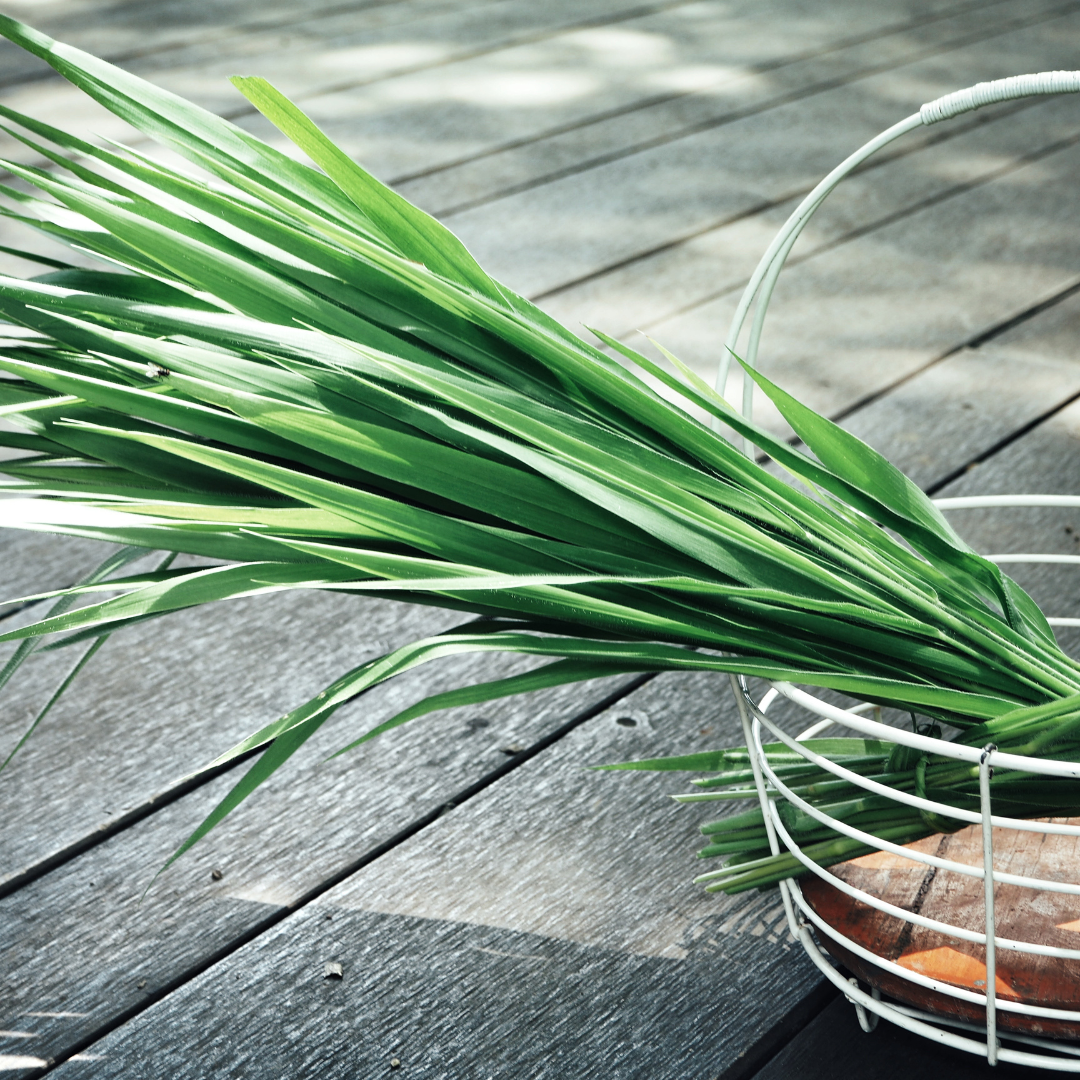
7. Vetiver Essential Oil
Vetiver essential oil is extracted from the roots of the Vetiveria zizanioides plant, which is native to India but is now also grown in other tropical regions. The oil has a complex, deep, and smoky aroma, often described as woody, earthy, and grounding.
Vetiver essential oil has been used in traditional medicine for centuries to treat various ailments, including fever, joint pain, and digestive issues. Aromatherapy is often used to promote relaxation and reduce feelings of stress and anxiety.
The oil is known for its calming and soothing properties and is said to help with insomnia and other sleep-related issues.
It is also believed to have a positive effect on the nervous system and can be used to ease feelings of nervousness, tension, and restlessness.
Vetiver essential oil can be diffused in a room to create a calming and relaxing atmosphere, added to a warm bath to promote relaxation, or applied topically to the skin to help soothe and nourish it.
It blends well with other essential oils, such as lavender, bergamot, and ylang-ylang, to create a more complex and pleasing scent.
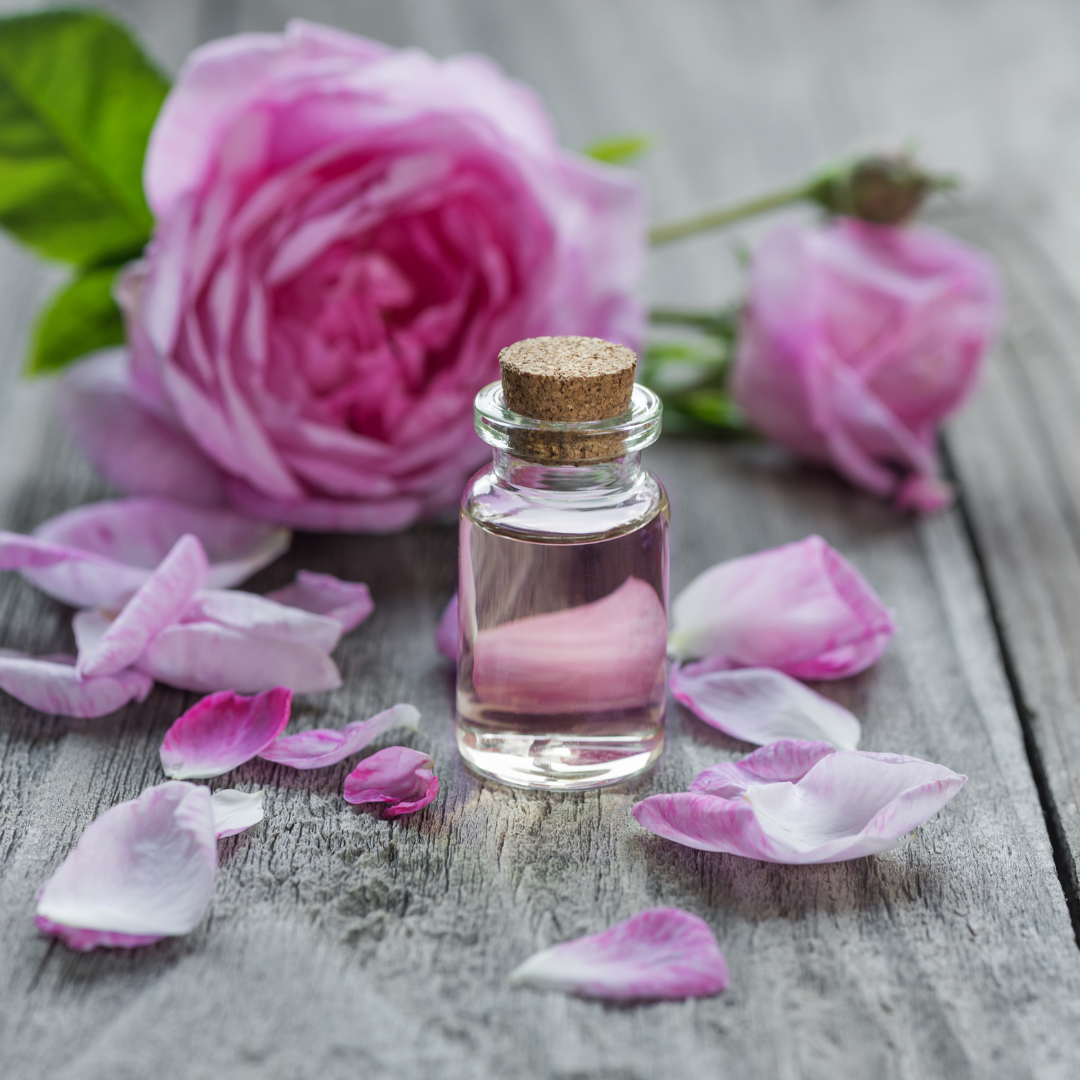
8. Rose Essential Oil
Rose essential oil is extracted from the petals of the Rosa damascena or Rosa centifolia plants, which are widely cultivated for their fragrant flowers. The oil has a rich, floral, sweet aroma, often described as romantic, feminine, and uplifting.
For its therapeutic and beauty properties, rose essential oil has been utilized for ages in various cultures.
It is a preferred option for aromatherapy and stress management because it is thought to have a calming and soothing effect on the mind and body. It can help reduce anxiety, depression, and stress and promote relaxation and well-being.
Rose essential oil can be diffused in a room to create a romantic and calming atmosphere, added to a warm bath to promote relaxation, or applied topically to the skin to help soothe and nourish it. It blends well with other essential oils, such as lavender, geranium, and chamomile, to create a more complex and pleasing scent.
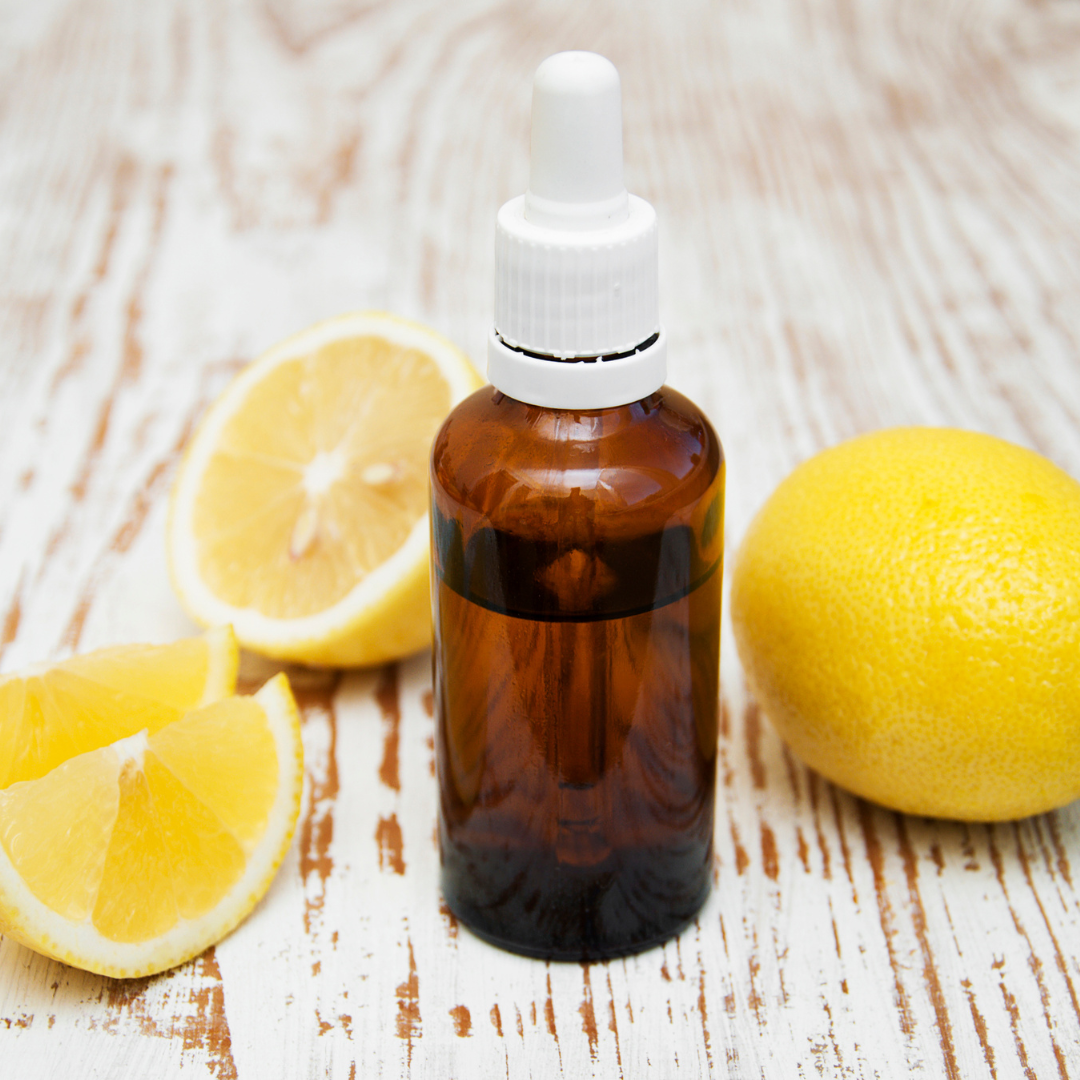
9. Lemon Essential Oil
Lemon essential oil is a highly versatile and popular essential oil derived from the peels of lemons through cold-pressing. It is widely used for its pleasant aroma and therapeutic properties.
The oil has a bright and refreshing scent that uplifts the mood and promotes mental clarity. It contains powerful antioxidants and antibacterial properties that can help to boost the immune system, fight infections, and purify the air.
Lemon essential oil is also known to have detoxifying effects on the body and can support healthy digestion. It can be used in a variety of ways, including:
- Diffusing it in a room to create a fresh and invigorating atmosphere
- Adding it to cleaning products to disinfect surfaces and remove smells
- Adding a few drops to a carrier oil and massaging it onto the skin to improve its appearance and texture
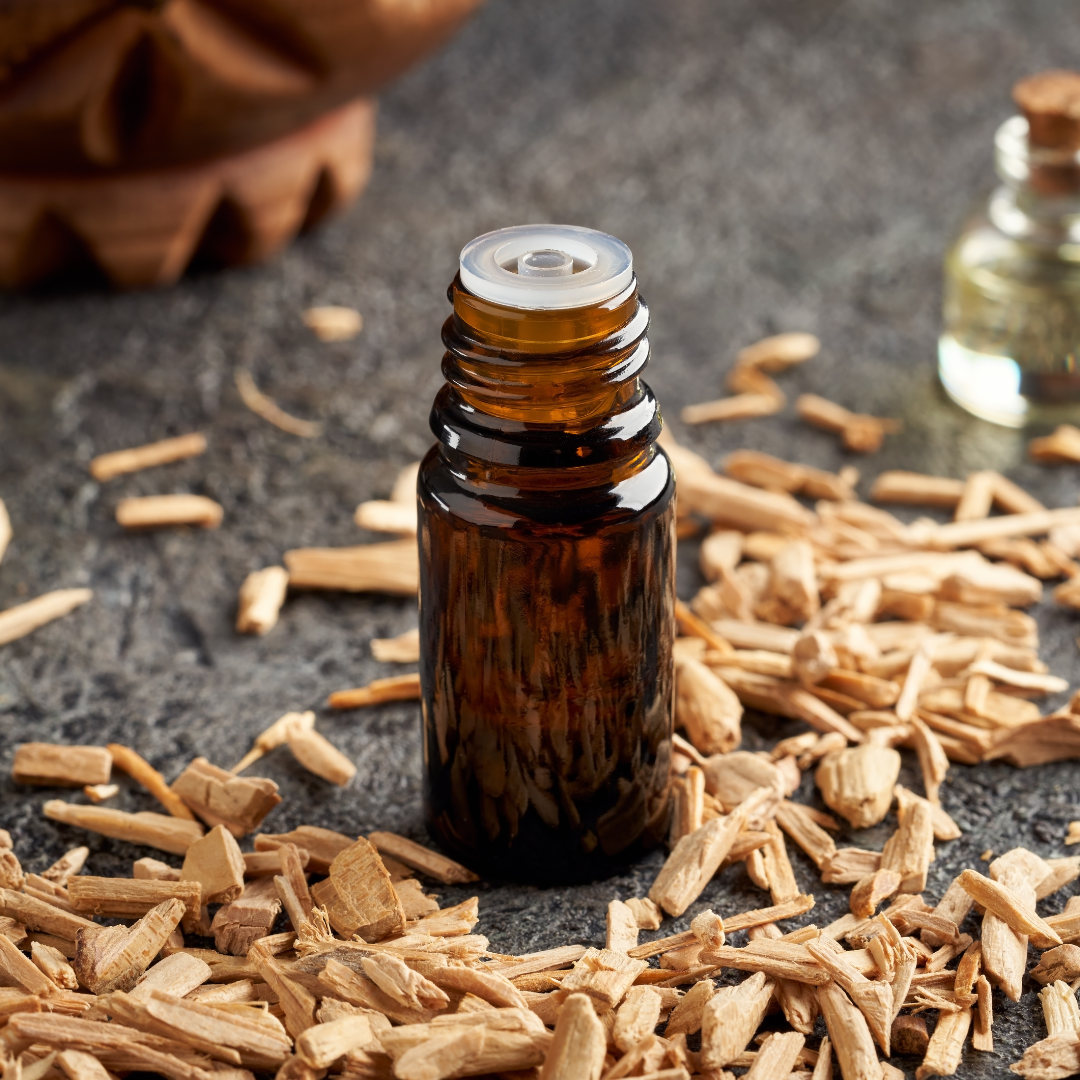
10. Cedarwood Essential Oil
Lemon essential oil is a highly versatile and popular essential oil derived from the peels of lemons through cold-pressing. It is widely used for its pleasant aroma and therapeutic properties.
The oil has a bright and refreshing scent that uplifts the mood and promotes mental clarity. It contains powerful antioxidants and antibacterial properties that can help boost the immune system, fight infections, and purify the air.
Lemon essential oil is also known to have detoxifying effects on the body and can support healthy digestion. It can be used in a variety of ways, including:
- Diffusing it in a room to create a fresh and invigorating atmosphere
- Adding it to cleaning products to disinfect surfaces and remove smells
- Add a few drops to a carrier oil and massage it onto the skin to improve its appearance and texture.
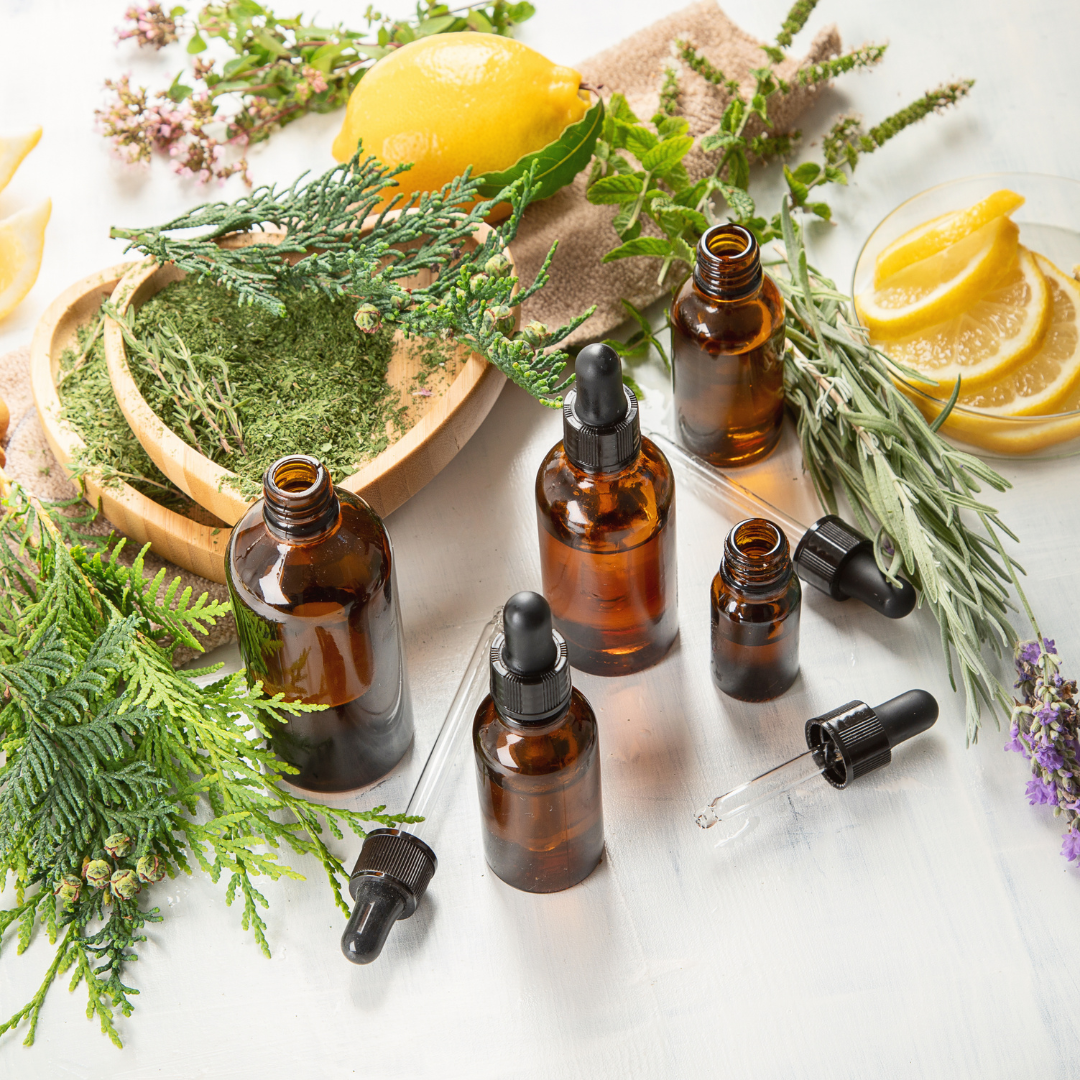
Conclusion
Essential oils can be a helpful tool in reducing stress and promoting relaxation. The ten essential oils mentioned in this article have different properties and scents, but they all have the potential to alleviate feelings of stress and anxiety.
Incorporating essential oils into your daily routine may cause you to experience a greater sense of calm and well-being.
It's important to remember that essential oils should not be used as a replacement for medical treatment or professional advice.
If you are experiencing significant stress levels, talking to your healthcare provider about appropriate treatment options is important.
Always purchase high-quality oils and follow proper safety guidelines when using essential oils.
Dilute essential oils before applying them topically, and only ingest them with guidance from a healthcare provider.
I trust you enjoyed this article about the Best Essential Oils To Reduce Stress. Please stay tuned for more blog posts to come shortly.
JeannetteZ
>>>Please click here to read my all-inclusive article about Lessons That Will Teach You All About Stress<<<
>>>Are you interested in Natural Healing And Stress Relief through Herbs? Please click here for my #1 Recommendation<<<
Your Opinion Is Important To Me
Thoughts? Ideas? Questions? I would love to hear from you. Please leave me your questions, experiences, and remarks about this article on the Best Essential Oils To Reduce Stress in the comments section below. You can also reach me by email at Jeannette@Close-To-Nature.org.
Disclosure
This post may contain affiliate links. I earn from qualifying purchases as an Amazon Associate and other affiliate programs. Please read my full affiliate disclosure.
You might also enjoy these blog posts:
7 Best Ways To Deal With Exam Stress
13 Best Simple Ways To Deal With Stress At Work
12 Best Tea Brands For Stress Relief
What Helps A Stress Headache Naturally?
Best Tips To Reduce Stress In Horses

